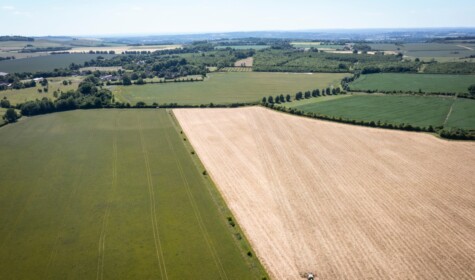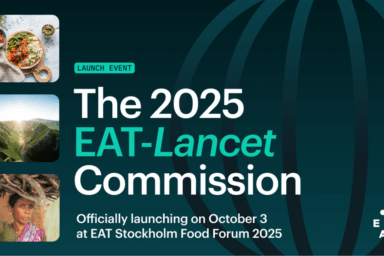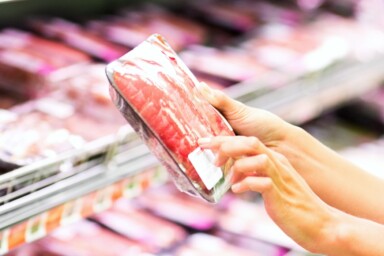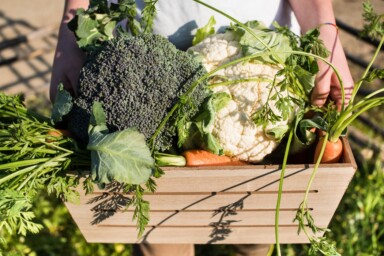Next week, the US President, Donald Trump, is visiting the UK. This visit, just like his last, has generated controversy and anger, with public protests scheduled to take place. As a result, there has been much discussion over the future of the US/UK relationship. While historically, there has always been a ‘special relationship’ between the two nations, this dynamic has ebbed and flowed over the years. Currently, with the UK’s exit from the EU, politicians have been identifying an opportunity to ‘pivot’ towards America and pursue a US/UK trade deal.
Adopting a free trade deal with the United States could have significant consequences for UK farming. Secretary of State Michael Gove has repeatedly supported the adoption of higher animal welfare standards and an agricultural support system that gives ‘public money for public goods’. This approach could work in the UK’s favour. In comparison to agriculture in other countries around the globe, Britain has a relatively high cost of production (in terms of land, inputs and labour) and this means that if the UK wants to export British food internationally, the only credible course is to compete on the basis of good quality and elevated standards. The UK should, consequently, aim to produce and export food with high animal welfare and environmental standards, which provide clear provenance, promote agroecological production (as in organic and regenerative systems), strengthen geographic indicators (PGI/PDO) and sustainable supply chains.
A poorly-designed free trade agreement with the US could undercut this vision of UK food. A trade deal that allows cheap, low quality imports could impair the ability of farmers to deliver the future for UK farming that has been outlined in Defra’s new Agriculture Bill and Environmental Land Management Scheme (ELMS).
The harsh reactions from NGOs against the potential deal with the United States have focused on the concerning practices of chlorinated chicken and hormone-treated beef. While there are significant concerns about these two aspects of US food production, there are other risks as well, that have not gained such wide attention. An estimated 60-80% of US pigs are fed the beta agonist drug, ractopamine, prior to slaughter. The treatment increases protein synthesis, resulting in increased muscle fibre size, weight gain, improved feed efficiency and increased carcass leanness. However, ractopamine has been found to cause serious disability in animals, including trembling, broken limbs and an inability to walk. It has subsequently been banned by the EU since 1996. Another concern would be azodicarbonamide (ADA), which is used in the US as a bleaching agent for cereal flour and a dough conditioner in baking. However, ADA is banned in the EUbecause, during baking, ADA breaks down to form a number of different chemicals, including semicarbizide (SEM) that has been found to increase the incidence of tumours in lab rats.
It is through practices like these that large-scale food producers in the US are able to reduce the cost of their products, and this could undercut UK producers who would be legally (and ethically) required to produce food to a higher standard. If cheap, industrial US food was allowed to enter the UK market without restraint, there could potentially be disastrous consequences for UK farmers, animal welfare and the environment, as well as failing to meet the expectations of the British public.Consequently, the SFT has been advocating for adequate checks-and-balances to guarantee that any trade deal with the US maintains the highest standards, and that foreign companies looking to export food into the UK are required to demonstrate that they have produced food to an equivalent standard.
This need for a level playing field is why we are supporting the amendment to the Agriculture Bill that has been tabled by Kerry McCarthy MP (Labour – Bristol East). Her proposal aims to ensure that the UK Government cannot enter into any international trade agreements that allow food to be imported into the UK that do not meet the UK’s standards on food safety, environmental protection and animal welfare. The goal of this amendment is to protect the UK consumer from poor quality imports and to allow UK farming to remain competitive, rather than seeing UK agriculture undercut by foreign food. We hope to see more MPs recognise the risk to UK food, signing on to support the amendment.
That said, there are truly excellent and inspiring farmers in the US. When we hosted our conference in San Francisco in 2016, the event was filled with growers and ranchers who have strong environmental and ethical beliefs embedded in their farming practices. Farmers like John Wick at the Marin Carbon Project, Will Allen at Cedar Circle Farm and Cory Carmen at Carmen Ranch, all of whom farm in a holistic and harmonious way and stay within planetary boundaries.
The potential problem posed by a trade deal is that international free trade agreements are designed to benefit transnational agribusinesses that are large enough to benefit from the economies of scale. It is companies like Modelez, Danone and Mars that have the global reach to benefit from these agreements, in a way that small- and mid-scale farmers cannot. These companies have the resources to ship huge quantities of food around the world and sell products through global supermarket supply chains, in a way that a small, local producer cannot. Consequently, a free trade deal with the UK would negatively impact agroecological farmers in the US as well as in the UK.
‘American’ food shouldn’t be demonised as the epitome of ultra-processed, poor-quality food. Instead, it’s important to celebrate and collaborate with small local producers around the world who are working for a better and more sustainable future. The global agroecological movement should join together to advocate for an international trade policy that supports farmers who use environmentally sound practices in their farming systems. The Sustainable Food Trust recognise that we are in a globalised world where products are traded internationally, and we would not advocate for a protectionist approach. However, we want a system where small-scale farmers can earn a living producing food sustainably.
To achieve this sustainable future, a new economic approach is needed, that values and supports sustainable farming around the world. The current global economic model means that most farmers have no option but to employ agricultural practices that do not serve the public interest and that put them at the mercy of commodity agriculture. Governments around the world need to unlock the barriers to change. Through collaborative advocacy, the global agroecological movement aims to build momentum behind a new economic and international trade system where farmers are financially supported for adopting sustainable practices, farming within planetary limits and enhancing their local food system.







